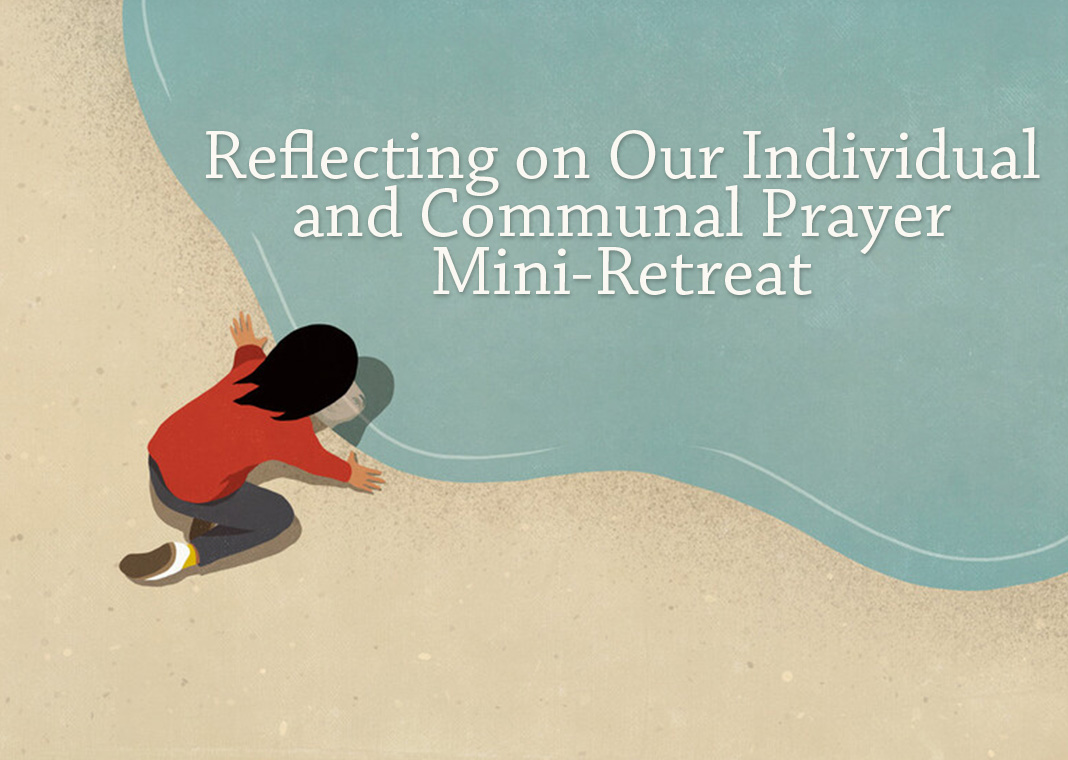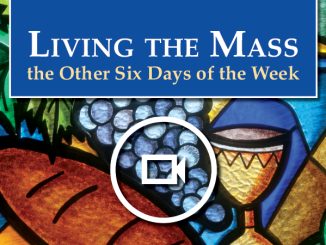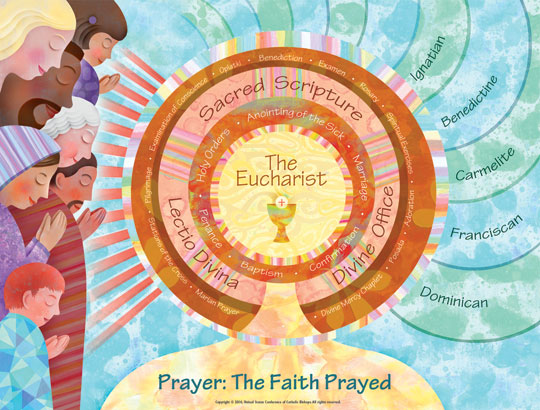
In preparation for the Jubilee Year 2025, Pope Francis has asked Catholics to prepare by dedicating time in 2024 to “promote initiatives to remind people of the centrality of both individual prayer and community prayer.” With that in mind, I invite you to a three-part mini-retreat devoted to reflecting on our individual and communal prayer. May your life of prayer be enriched and filled with abundant blessings!
Pray Without Ceasing
I’m sure you are familiar with a game that children love to play in the swimming pool, called Marco Polo. In this game, one child moves to one side of the pool and closes his or her eyes. The other children move to the other side of the pool. The first child then calls out, “Marco!” as the others immediately respond, “Polo!” The first child, with eyes closed, then attempts to swim to where the voices were coming from, all the while calling out, “Marco!” while the others, who are now dispersing, respond, “Polo!” This goes on until “Marco” catches up to and tags one of the kids shouting, “Polo!” It’s obvious from observing this children’s game that the person doing the calling is at a disadvantage. He or she has to call out and then listen for the responses before moving blindly in their direction, hoping to make contact as the other players swim away.
Unfortunately, we sometimes think that the same model can be applied to our prayer lives. We desperately call out for God, hope for a response, and then move blindly in one direction, hoping to make contact with God before he moves on. Thankfully, this is not at all how prayer works. God is the one calling out to us, revealing his presence to us, and inviting us to respond by moving closer to him as God moves closer to us.
All prayer, then, is a response to God.
The first time I heard this phrase, uttered by one of my professors, I objected, saying, “That can’t be applied to prayer of petition. We initiate those prayers, and we look for God to respond.” My professor gave me that smile that professors use when they know they’re right and the student is wrong. He then went on to explain, “The only reason we are offering petitions to God in the first place is because we have seen, heard, and experienced God’s saving deeds and, in response, we are asking for one thing more.”
He was right, and I was wrong. And that explanation has made all the difference to me in terms of understanding my place before God. You and I are not traveling beneath God’s radar, out of his range of awareness, and in need of attracting his attention. Rather, God is actively pursuing us, inviting us to recognize his loving presence in the midst of our everyday lives. Prayer is our awareness of the divine presence in our lives. Prayer is our response to God’s undying efforts to reach our hearts.
It is only with such an understanding of prayer that we can hope to achieve St. Paul’s directive to “pray without ceasing” (1 Thessalonians 5:17). If prayer were simply talking to God, the only way to pray without ceasing would be for us to be talking incessantly to God. No relationship can survive if one person is constantly talking. Likewise, in the course of our daily lives, we simply cannot carry on an unending monologue with God. Prayer does involve talking to God, but much more than that, prayer describes all of our efforts to recognize and respond to God’s presence.
To pray without ceasing, then, means to live our lives in communion with God. It means to live every moment of our lives in the context of God, fully aware of God’s presence in the moment. Sometimes those moments will evoke words in us. Most of the times, those moments are simply a silent acknowledgment of the divine presence.
Reflection Questions
Choose one of the following questions, and share your thoughts with your fellow retreatants by adding your comments in the comments box below this post.
- What are your first memories of praying? Who taught you to pray? How?
- What impact does it have on your prayer life to recognize that all prayer is a response to God?
- How is it possible to pray without ceasing?
- Which form(s) of prayer—adoration, petition, intercession, thanksgiving, praise—do you rely on most often?
- What are some of the things and people for which you pray?
- What do you consider to be the purpose of prayer? What advice would you give to someone who felt that prayer was a waste of time?
Prayer
Loving God, thank you for inviting me into relationship with you. Help me to recognize this invitation and to respond with humble thankfulness each and every day. Holy Spirit, teach me to pray so that I may grow closer to the Father through Jesus. Help me not only to talk to God but to listen to the ways that God is speaking to me. Amen.
Additional Reading
- Silence
- Daily Examen
- Hearing God’s Voice in the Busyness
- Ignatian Prayer Online
- Why Do We Pray?
- Loyola Press Books on Prayer
CCC References: 2558–2649





Be the first to comment